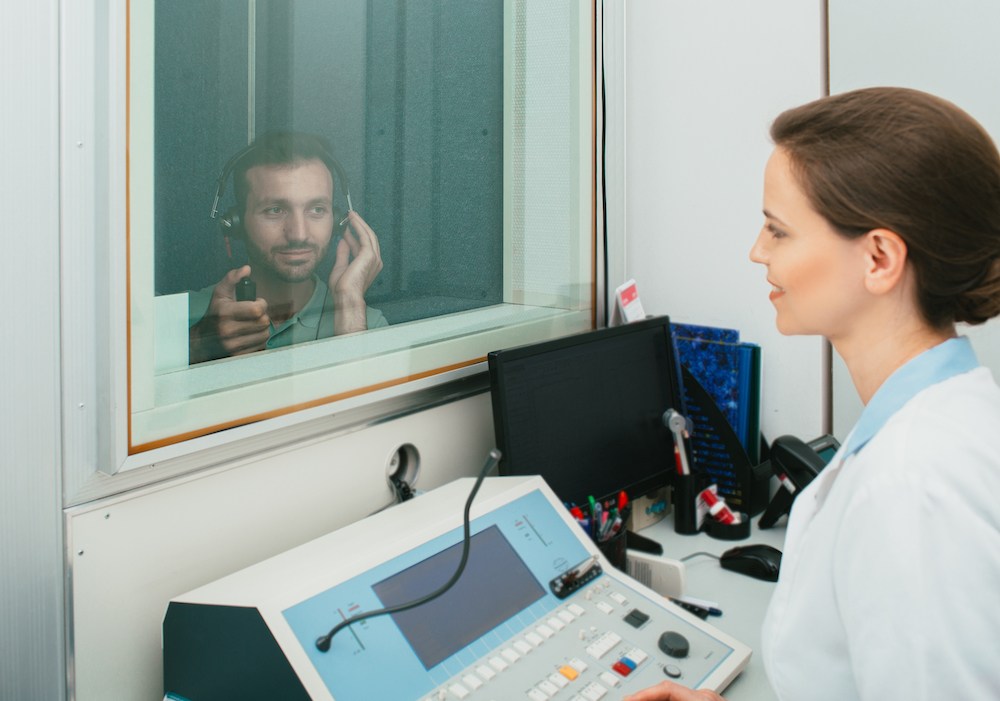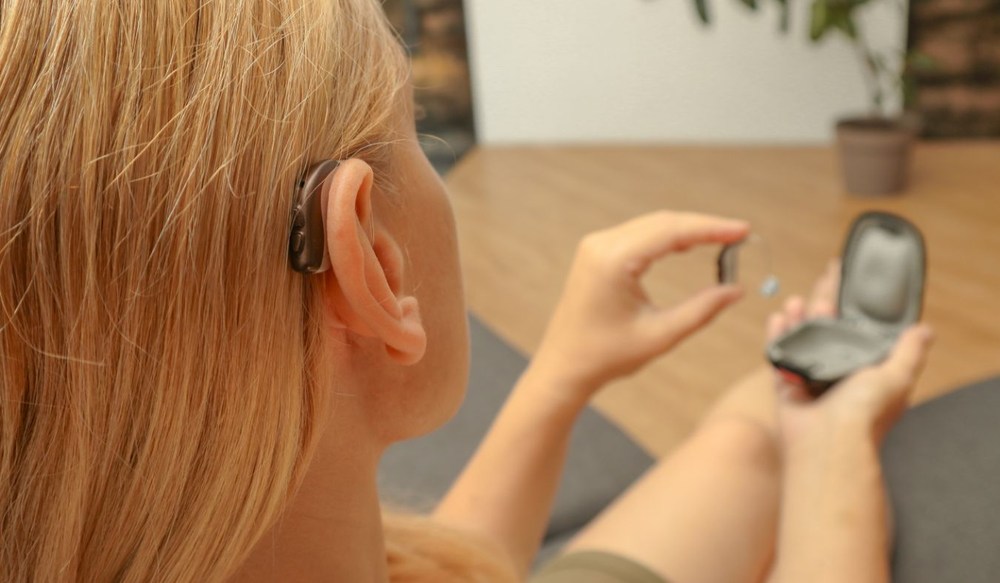Managing Hearing Aid Performance in Heated Indoor Spaces
During the colder months, most of us spend a lot more time indoors with

By: admin | August 21, 2025
Getting accurate results from a hearing test depends heavily on the environment where it’s conducted. Background noise that you might not even notice during normal conversation can actually interfere with the sensitive measurements being taken during your evaluation. Whether it’s traffic outside, heating and cooling systems running, or people talking in adjacent rooms, these sounds can make it difficult to get a true picture of your hearing abilities. What seems like a quiet office might still have enough ambient noise to affect your test results.
The testing environment matters because hearing evaluations are designed to measure very specific aspects of your hearing capability. If outside noise is competing with the test sounds, your results might not accurately reflect how well you actually hear in everyday situations. This is why hearing professionals take care to control the testing environment as much as possible. Getting reliable information about your hearing health starts with making sure the test is conducted in the right conditions.
When someone starts missing parts of conversations or asks you to repeat things more often, it might be easy to brush it off as distraction or background noise. But if it keeps happening, it’s worth looking at more closely. Subtle shifts are usually the first to show up, like turning the TV up louder than usual or misunderstanding words that sound similar. These aren’t always dramatic changes but they can quietly interfere with day-to-day communication.
You might also notice frustration creeping in, both for the person experiencing changes and for the people around them. It can sound like others are mumbling or not speaking clearly, even though nothing about the speaker has changed. Noisy places like restaurants or group settings often become especially difficult. Someone who used to enjoy social gatherings might start avoiding them because it’s harder to follow the flow of conversation.
Another sign to watch for is how someone responds when they don’t hear something. Filling in the blanks, guessing at what was said or giving a vague answer instead of asking for clarification might be their way of keeping up. These habits can build gradually until it becomes second nature. If you’re noticing patterns like this, especially in combination, it’s a good time to step in. A hearing evaluation can offer clarity and help guide next steps before things become more frustrating.
Even if someone hasn’t noticed specific changes in hearing, there are certain times in life when it makes sense to schedule a hearing test. Adults over 60 should plan to get tested routinely, even without obvious symptoms. Age-related hearing changes can start gradually and might not be immediately noticeable. Catching those shifts early gives you more options for support and makes day-to-day communication easier in the long run.
Hearing tests also matter if a person is regularly exposed to loud environments. That could mean working in construction, manufacturing, agriculture or even spending a lot of time around power tools, music equipment or loud machinery. A history of frequent ear infections, certain health conditions like diabetes or high blood pressure or a family history of hearing issues can also increase risk. If someone has ringing in the ears, sensitivity to sound or has ever had sudden hearing loss, it’s important not to wait. Testing helps us understand what’s happening and how to move forward in a way that works for everyday life.
When you arrive for your hearing test, the process is usually straightforward and comfortable. It typically begins with a short discussion about your medical history, lifestyle and any concerns you’ve noticed. Your hearing specialist might ask about ringing in your ears, difficulty hearing in background noise or changes that have happened gradually over time. This conversation helps guide the testing process and highlights any areas that may need closer attention.
Next, your hearing professional will take a look inside your ears using an otoscope. This quick check helps rule out any physical issues like wax buildup or signs of irritation that could be affecting how well sound travels through the ear. If the ear canal and eardrum look healthy, they’ll move on to the hearing tests themselves. These are performed in a quiet space using either headphones or soft inserts that sit in your ears.
There’s nothing you need to do in advance to prepare. The most important part is to respond honestly to the sounds and instructions, even if you’re unsure. After the testing is complete, your specialist will walk you through the results. You’ll leave with a better understanding of how your hearing is functioning and whether anything needs follow-up care or support.
Several types of hearing tests may be used depending on your symptoms, age and hearing history. Each one provides a different piece of information about how sound moves through your ears and how your brain processes it.
Hearing evaluations are typically done in a quiet, controlled space designed to block out external noise. Most clinics use a sound-treated booth or a specialized testing room for this part of the appointment. These spaces are built to minimize distractions and create the right environment for accurate results. Background noise can interfere with how well soft sounds are detected, so the testing area is an important part of the process.
The booth itself is usually a small, well-lit room with space for you to sit comfortably. It’s not enclosed like an MRI or tight like a closet, but it is sealed to keep outside sound out. You’ll wear headphones or insert earphones while the provider conducts the tests from just outside the room, often through a large window or via a connected computer system. A microphone allows for clear instructions and back-and-forth communication during the evaluation.
Some parts of the exam, like checking your eardrum movement or measuring inner ear responses, may be done outside the booth in the main exam area. These tools don’t require total silence, but when it comes to measuring how well you hear quiet tones or speech, that sound-treated space makes a real difference.
Environmental noise can have a significant impact on the accuracy of hearing tests. Even low levels of background noise can make it harder to detect soft sounds during pure-tone audiometry. This means the results might suggest your hearing is worse than it actually is. Sounds like conversations, traffic, air conditioning or nearby machinery can all interfere with the quiet tones the test relies on. That is why testing in a sound-treated booth or a similarly controlled environment is so important.
When background noise is present, it can cause distractions that affect your focus and concentration. Hearing tests require you to listen carefully and respond to specific sounds or words. If there is noise around you, it may be difficult to tell whether you missed a sound because it was too quiet or because something else was competing for your attention. This can lead to inconsistent responses and make it harder for the hearing specialist to interpret the results accurately.
Some tests, like speech audiometry, are especially sensitive to environmental noise. Understanding speech clearly becomes much harder if there is even moderate noise in the room. If the testing environment isn’t quiet enough, it may not provide a true picture of how well you hear spoken language in everyday settings. This can affect decisions about the kind of support or treatment that will work best.
In addition to interfering with the test itself, environmental noise can also increase anxiety or stress during the evaluation. When it’s noisy or chaotic, it can be harder to relax and focus on the instructions. This makes it more likely for test results to be less reliable. Ensuring the testing environment is calm and quiet helps your hearing professional get the clearest information possible, which leads to better recommendations and care.
After the hearing test, your hearing specialist will go over the results with you. They will explain what the findings mean for your hearing and discuss any changes that might be affecting you. This is the time to ask questions and talk about how your hearing impacts your routine and activities. Having a clear understanding of the results helps you make informed decisions about next steps.
It’s helpful to prepare some questions to ask your hearing provider about your results and what they mean. You might want to know how your hearing compares to others your age, what sounds or situations could be more challenging, and whether your hearing is likely to change over time. Asking about how hearing aids might fit into your lifestyle, what maintenance they require and what kind of support is available can also make the process clearer. Don’t hesitate to ask anything that will help you feel more comfortable and informed as you decide what comes next.
If hearing aids are recommended, the specialist will describe how they work and what options are available based on your specific needs. They will explain the fitting process and how you can expect to get used to wearing them. The focus is on finding a device that fits well and supports your hearing in the situations that matter most to you.
Choosing the right place for your hearing evaluation means more than just finding a convenient location. It means making sure your test is carried out in a space where outside noise won’t interfere with the results. A well-designed testing environment helps your hearing professional focus on the details that matter and gives you information you can trust. When the surroundings are quiet and controlled, you’re more likely to leave with an accurate understanding of how your hearing is working and what kind of support, if any, is needed.
If you’re ready to schedule a hearing evaluation, contact Rhodes Centers for Better Hearing at one of our Illinois hearing clinics at Brookport: 618-564-2558, Harrisburg: 618-241-0403 or Marion: 618-998-8471. You can also reach our Paducah, Kentucky office by calling 270-366-0439. No matter which location you choose, your evaluation will be done in the right environment with attention to accuracy and care.

During the colder months, most of us spend a lot more time indoors with
By: admin | February 20, 2026

Hearing aid technology is moving toward a more individualized approach
By: admin | December 21, 2025

Getting accurate results from a hearing test depends heavily on the
By: admin | August 21, 2025
